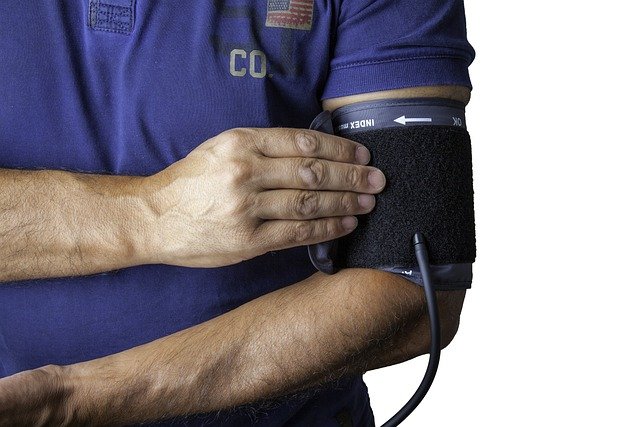Medical Checkup: Purpose, Process, and Practical Steps
A medical checkup is a scheduled visit with a healthcare provider to assess current wellbeing, screen for common conditions, and offer preventive advice. These visits can vary from a brief annual physical to a comprehensive assessment including tests and screenings, depending on age, risk factors, and medical history. Understanding what happens during a checkup helps you prepare and makes the interaction with your doctor or hospital-based clinic more productive and focused on long-term health.

This article is for informational purposes only and should not be considered medical advice. Please consult a qualified healthcare professional for personalized guidance and treatment.
What does a doctor assess during a checkup?
During a routine visit a doctor typically reviews your medical history, current medications, and any symptoms or concerns. The assessment often includes measurement of vital signs such as blood pressure, heart rate, respiratory rate, and temperature. The clinician will check weight and body mass index, inspect key systems (heart, lungs, abdomen), and perform focused exams—ears, eyes, throat, skin—based on age and risk factors. Preventive topics like vaccinations, cancer screenings, and lifestyle risks are commonly discussed.
Many doctors use checkups to update chronic disease plans (for diabetes, hypertension, or asthma), adjust medications, and order relevant laboratory tests. This is also an opportunity to address mental health, sleep, nutrition, and exercise patterns. A good visit results in a clear plan for follow-up, tests, or referrals to specialists if needed.
When is a hospital visit needed for medical issues?
A hospital visit is appropriate when symptoms suggest urgent or serious problems that require immediate evaluation or interventions not available in primary care. Examples include severe chest pain, difficulty breathing, major trauma, sudden neurological changes (like weakness or confusion), or uncontrolled bleeding. Hospitals provide diagnostic imaging, emergency procedures, and inpatient care that outpatient clinics typically do not offer.
For non-urgent issues, your doctor can advise whether a hospital visit is necessary or whether evaluation at a local services clinic or outpatient center is sufficient. If a checkup reveals concerning findings—abnormal labs, very high blood pressure, or acute symptoms—your physician may recommend hospital assessment to ensure rapid diagnosis and treatment.
What components make up a routine medical checkup?
A routine medical checkup commonly includes a review of personal and family medical history, physical examination, and screening tests tailored to age and risk. Standard tests can include blood tests (complete blood count, metabolic panel, lipid profile), urine analysis, and, when appropriate, screening for diabetes or thyroid dysfunction. Women and men may have gender-specific screenings, such as mammography or prostate assessments, based on guidelines and individual risk.
Preventive counseling is a key component: vaccinations, smoking cessation, sexual health, diet advice, and exercise recommendations. The exact components vary by location, patient age, and comorbidities; doctors aim to balance necessary screening with avoiding unnecessary procedures. Always ask which tests are recommended for your situation and why.
How to prepare for a checkup with a doctor?
Preparing helps maximize the value of your appointment. Bring a list of current medications (including dosages), recent test results or medical records, and a concise list of symptoms or concerns prioritized by importance. Note any family history of chronic diseases and your vaccination history. Wear comfortable clothing for an exam and arrive a few minutes early to complete administrative forms if needed.
If fasting bloodwork is planned, follow fasting instructions and confirm whether to stop medications beforehand. Prepare questions about preventive screenings or lifestyle changes so the doctor can address them. If you have difficulty accessing local services or need language assistance, contact the clinic ahead of time to arrange support.
How do checkups support long-term health?
Regular medical checkups help detect conditions early when they are often more treatable, reduce the risk of complications from chronic diseases, and guide preventive care choices. Through periodic monitoring, doctors can spot gradual changes—rising blood pressure, worsening cholesterol, or early signs of metabolic disorders—and intervene with lifestyle advice or medications to slow progression. Checkups also provide continuity of care, making it easier to coordinate referrals, track treatment effectiveness, and tailor plans to personal goals.
Beyond physical measures, checkups allow assessment of mental and social factors that affect health, such as stress, sleep, and access to local services or community resources. By addressing these dimensions, a medical checkup becomes a tool for sustained health maintenance rather than only episodic care.
Conclusion
A medical checkup is a collaborative opportunity between you and your healthcare team—whether in a doctor’s office, clinic, or hospital setting—to assess current health, prevent disease, and plan future care. Preparing for the visit, understanding typical components, and communicating openly about symptoms and lifestyle can make checkups more effective. Regular, appropriately tailored checkups contribute to early detection, better management of chronic conditions, and overall improved health outcomes.






